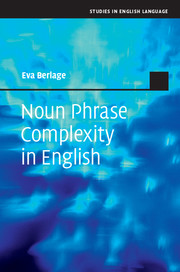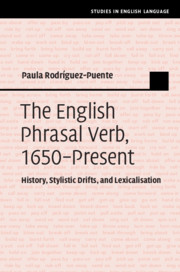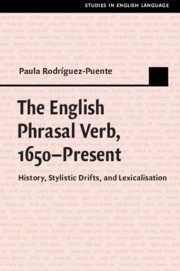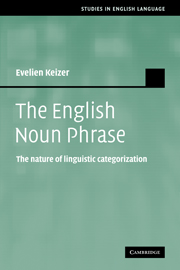The English Binominal Noun Phrase
The binomial noun phrase, or of-binomial, is an important phenomenon in the English language. Defined as a noun phrase that contains two related nouns, linked by the preposition of, examples include a hell of a day and a beast of a storm. This pioneering book provides the first extensive study of the evaluative binominal noun phrases (EBNP) in English, exploring the syntactic rules that govern them, and the (functional) semantic and pragmatic links between the two nouns. Combining quantitative and qualitative methods, corpus data, and two different theoretical approaches (Construction Grammar and Functional Discourse Grammar), it argues that the EBNP now functions as a stage in a grammaticalization path that begins with a prototypical N+PP construction, continues with the head-classifier, and ends with two new of-binominal constructions: the evaluative modifier and binominal intensifier. Comprehensive in its scope, it is essential reading for researchers in syntax, semantics, and English corpus linguistics.
- Provides the first extensive study of English evaluative of-binominals
- Demonstrates a multi-theoretical approach to corpus data
- Brings together previous of-binominal research from a range of different theoretical backgrounds
Reviews & endorsements
'The English Binomial Noun Phrase provides a comprehensive look at an often overlooked, yet important and complex aspect of the English language. This work will be a great resource for scholars and researchers.' Randi Reppen, Professor Emerita, Northern Arizona University
Product details
July 2023Hardback
9781108830959
280 pages
235 × 158 × 23 mm
0.63kg
Not yet published - available from February 2025
Table of Contents
- Figures
- Tables
- Acknowledgements
- List of Abbreviations
- 1. Introduction
- 2. Of-binominal Classification
- 3. From Prototypical N+PP to Pseudo-partitive
- 4. The Evaluative Of-binominals
- 5. Three Case Studies: Cake, Beast, and Hell
- 6. Diachronic Evidence
- 7. Premodification Evidence
- 8. The EBNP Family: A Construction Grammar Analysis
- 9. The EBNP Family: A Functional Discourse Grammar Analysis
- 10. Discussion and Conclusions
- 11. References.







